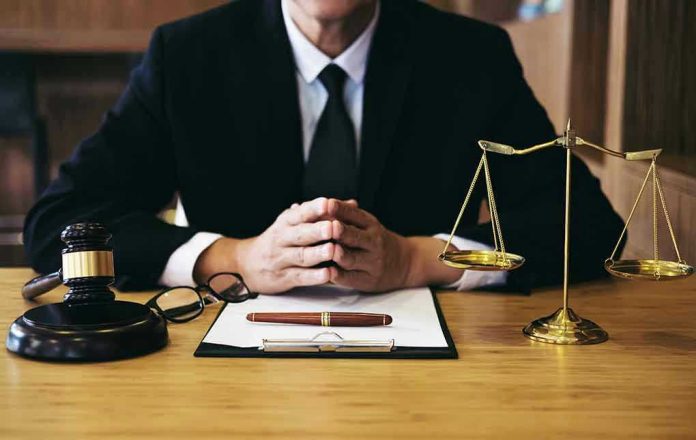
President Trump’s inquiry into Biden’s alleged autopen use for pardons has reignited a fierce debate over presidential legitimacy and the integrity of executive actions, directly challenging the constitutional foundations that conservatives hold dear.
Story Snapshot
- Trump accuses Biden of abusing the autopen to sign key executive documents, questioning the validity of his actions.
- Congressional Republicans have launched formal investigations and issued subpoenas to White House staff.
- Experts confirm autopen use is legal if authorized, but the controversy highlights deep partisan distrust and concerns about transparency.
- No evidence has been shown that Biden’s autopen use was unauthorized, but the issue continues to polarize and energize both sides.
Trump’s Accusations and Political Motives
President Donald Trump ignited national controversy by alleging that former President Joe Biden abused the autopen, a mechanical signature device, to approve vital executive actions—most notably, pardons for January 6 committee members. Trump asserts that this practice not only conceals Biden’s alleged cognitive decline but also undermines the legitimacy of pivotal presidential decisions. He has called for investigations, framing the autopen’s use as a constitutional crisis and a threat to the nation’s foundational principles.
Trump’s campaign quickly moved beyond rhetoric. In June 2025, he ordered a formal inquiry into the legality and implications of Biden’s autopen use. By July, House Republicans had issued subpoenas for White House staff and presidential medical records, seeking to determine whether Biden had the capacity and proper authorization to sign these executive documents. Trump’s allies in Congress and conservative advocacy groups, such as the Heritage Foundation’s Oversight Project, have amplified concerns about presidential capacity, arguing that unchecked autopen use could erode the very notion of accountable executive leadership.
Historical Context and Legal Precedent
The autopen’s origins stretch back to the early 1800s, with U.S. presidents—from Thomas Jefferson to Barack Obama—quietly deploying the device for routine or ceremonial signatures. Notably, President Obama’s use of the autopen in 2011 to sign a critical bill while overseas drew brief legal scrutiny but was ultimately accepted as valid. Legal scholars and historians maintain that autopen use is lawful, provided the president authorizes its deployment. Even President Trump has admitted to limited autopen use for “unimportant papers,” but distinguishes this from what he characterizes as Biden’s broad, consequential reliance on the device.
This controversy is not merely about the mechanics of signing documents. It emerges against a backdrop of escalating partisan mistrust, heightened scrutiny of presidential health, and broader concerns over the transparency of executive actions. As Trump and his supporters highlight, any process perceived to bypass direct presidential oversight—especially for matters as grave as pardons or appointments—raises alarms about government overreach and the erosion of constitutional checks and balances.
Congressional Response and Ongoing Investigations
House Republicans have aggressively pursued the issue, launching a series of subpoenas targeting White House staff and demanding medical documentation regarding Biden’s fitness for office. Their stated aim is to ensure that every presidential action, especially those affecting the justice system and individual rights, is executed with full awareness and legal authority. Biden, for his part, has defended the practice, citing precedent and necessity, and dismissed the accusations as politically motivated attacks designed to sow doubt about his presidency. Both sides have doubled down, fueling extensive media coverage and intensifying partisan debate.
Despite the furor, no concrete evidence has emerged showing that Biden signed documents via autopen without proper knowledge or consent. Legal experts reiterate that the device’s use is not inherently problematic if the president authorizes it. Still, the controversy’s persistence demonstrates deep public concern about transparency and executive accountability, particularly in an era when many Americans already question the integrity of government institutions.
Expert Analysis and Broader Implications
Most industry experts and legal authorities, including the Shapell Manuscript Foundation, agree that autopen use is both legal and well-precedented, provided direct presidential approval is in place. Some analysts argue that the uproar is more a function of political theater than substantive legal crisis, noting a lack of evidence for actual wrongdoing. Nevertheless, conservative groups and many in the public see the episode as a warning sign: any ambiguity in presidential decision-making procedures can sow distrust and threaten the legitimacy of executive actions. If the controversy endures, it could prompt reforms to White House signature protocols or even inspire new legal standards for executive documentation.
Pres. Trump suggests autopen was used to pardon J6 cmte members #J6 https://t.co/C3etf7OxUX
— Paradise Lost CA (@ParadiseLostCA) September 9, 2025
The social and political impact of the autopen scandal extends beyond legal arcana. For many conservative Americans, the debate underscores ongoing fears about government overreach, erosion of constitutional values, and the need for transparency from public officials. Whether the investigations yield actionable findings or not, the controversy reinforces a core message: vigilance is essential to preserve the integrity of the presidency and the rights of the American people.
Sources:
Trump-Biden Autopen Controversy: TIME
What is an autopen? President Biden, Trump signature controversy – CBS News







